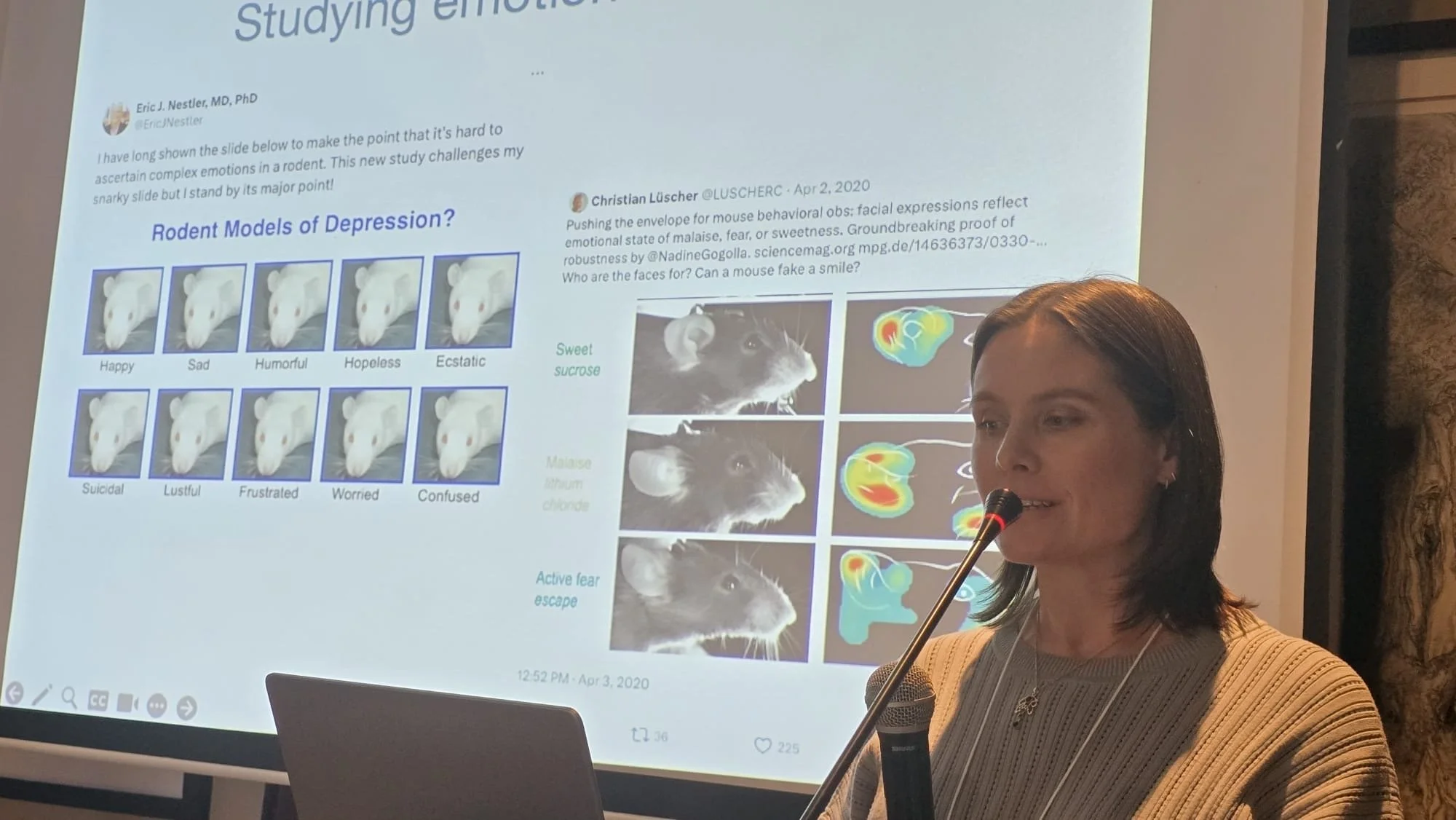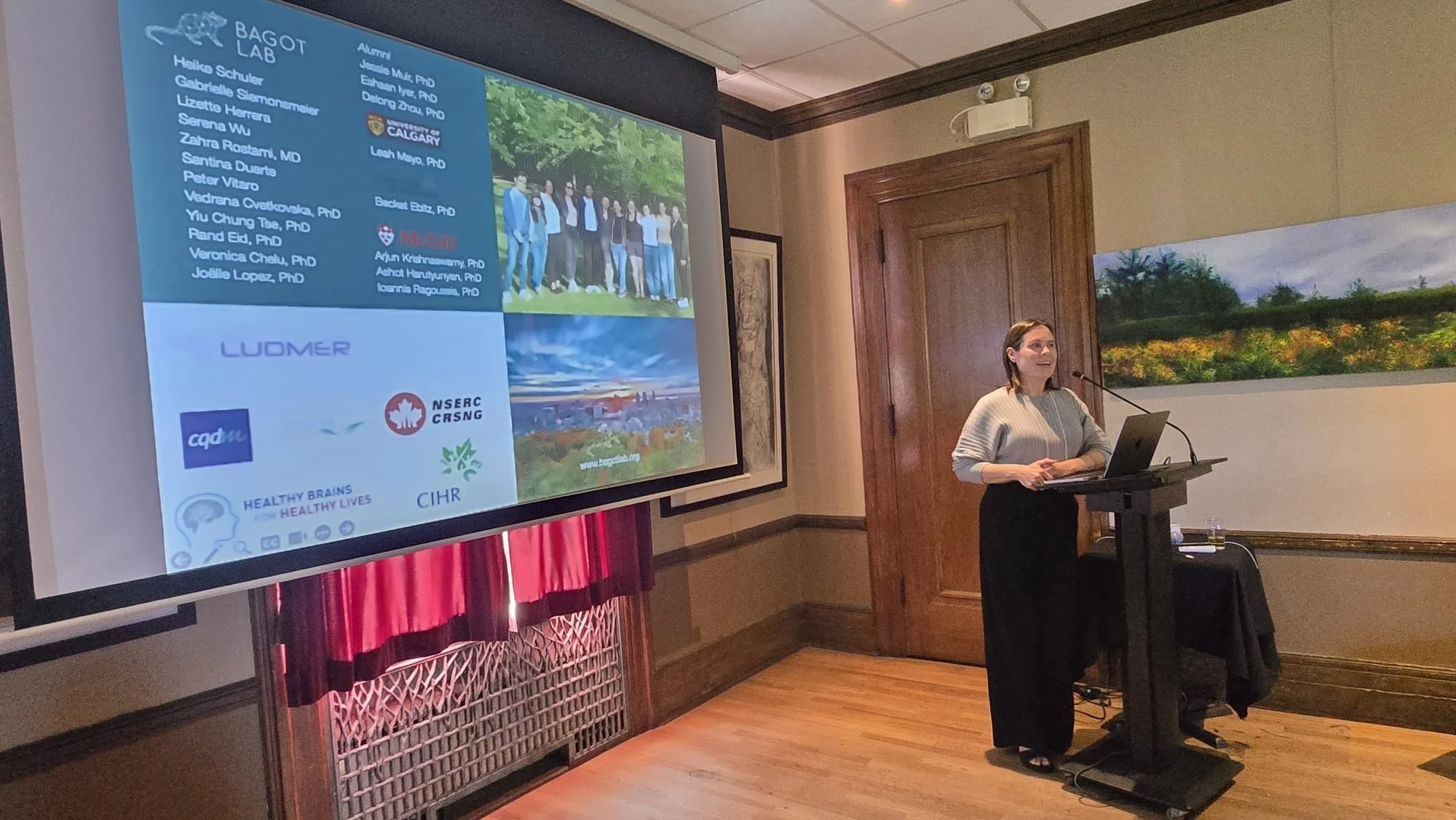Rosemary C. Bagot, Ph.D.
Rose graduated from the University of New South Wales, Sydney, Australia with a B.Sc. in Psychology, first class honours and the University Medal, and received her Ph.D. in Neuroscience from McGill University, Montréal, Canada. Her graduate work with Michael Meaney and Tak Pan Wong identified synaptic and transcriptional mechanisms by which early life adversity regulates life-long differences in glutamatergic transmission in hippocampus. Rose went on to pursue postdoctoral research with Eric Nestler at the Icahn School of Medicine at Mount Sinai in New York, USA. Her postdoctoral research established pathway-specific roles of glutamatergic inputs to the nucleus accumbens in stress regulation of emotional behaviors with a specific role for the ventral hippocampus in driving susceptibility. She went on to identify key gene networks underpinning the opposing stress-induced adaptations in prefrontal cortex, ventral hippocampus and nucleus accumbens circuits.
Rose is an Associate Professor in the Department of Psychology at McGill University and the Canada Research Chair in Behavioural Neurogenomics. She is also a Primary Investigator at the Ludmer Centre for Neuroinformatics and Mental Health, a member of the Centre for Studies in Behavioral Neurobiology, and an Associate Member of the Department of Psychiatry at McGill University.
rosemary.bagot@mcgill.ca
514.398.3419
Stewart Biology Building, N8/4
Department of Psychology
McGill University
1205 Avenue Dr Penfield
Montréal, QC
H3A 1B1
Canada
Philosophy
Positive work environments are built upon mutual respect and shared responsibility. By making expectations explicit, I aim to foster a happy and productive environment in which to conduct innovative, impactful science to ultimately reduce the burden of depression and other psychiatric disorders. Achieving this mission takes a team of dedicated and committed researchers.
A core principle of our team is that everyone feels valued and welcome. I am happy all of you are here, I care about you as human beings, and I want you to feel happy to be here. I expect us all to be respectful of each other. I subscribe to the philosophy that the best science is fueled by diverse perspectives. We must all commit to work actively to build an inclusive and welcoming environment that recognizes and values the diversity of human experience, including ethnicity, gender identity, age, socio-economic status, educational attainment, country of origin, sexual orientation, ability, language, religion, and the many other identities that enrich our community.
In my broader mission as a mentor, I seek to support you in achieving your personal goals, whatever those may be. I am available to discuss your career goals, be they similar or different to the path I have followed. I expect that you will continue to grow actively by learning new skills and tackling new challenges. This will likely involve feeling excited, stupid, invigorated, uncomfortable and sometimes like you have failed. This is all integral to learning! I expect all lab members to be proactive in identifying what additional training may be helpful to contribute to our mission and achieve your personal goals. To the greatest extent possible, I will support you in accessing such training.
If you are in our lab it is because you are highly motivated, passionate and excited about research and want to apply your skills to make a difference. For me, being a scientist has always been an enormous privilege - our work allows us to tackle issues of fundamental importance to the human condition and contribute exciting new discoveries about how the brain works. With this comes responsibilities. I expect that you will work productively with the skills and resources you have and be respectful of all living beings. I also expect that you will be honest about the limits of your expertise and be brave and humble enough to ask for help when needed. I expect that you will strive to be a good citizen of the lab and contribute to keeping the lab a clean, organized and productive work environment and share your time and expertise with colleagues.
Finally, science is a demanding profession. There are times when experiments or deadlines dictate long hours but equally, we are privileged to be able to set our own schedules and take breaks according to personal need. We do extremely creative and challenging work. This kind of work requires mental breaks and time away from the lab to relax and rejuvenate. I expect that students and post-docs will manage their own time. I will assess your productivity not your hours in the lab. There will be crunch times when we need to work around the clock, but this should not be the norm. Please take time to spend with your friends and family and for activities that nourish your soul.




